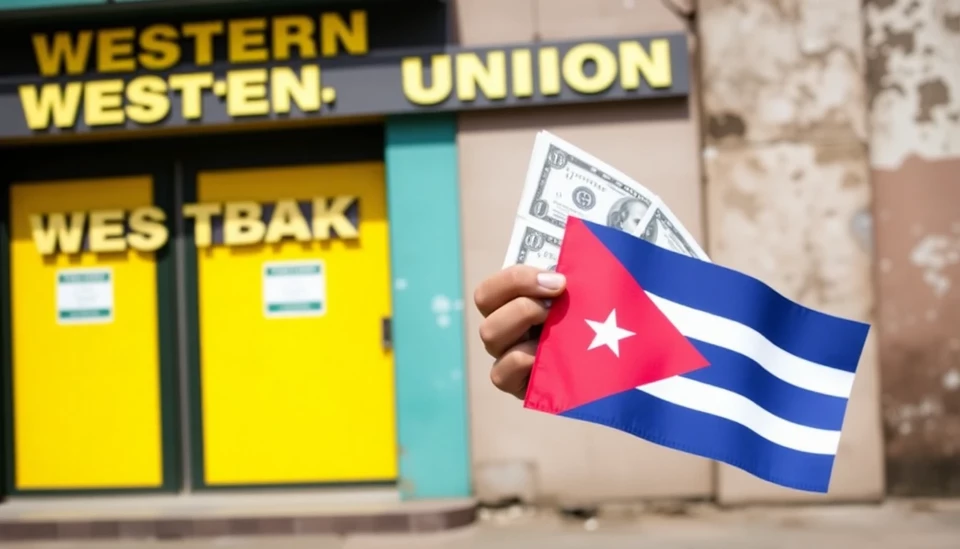
In a significant move, Western Union has announced the suspension of money transfer services to Cuba, a decision that has been attributed to the implementation of new sanctions. This development marks a crucial shift in how individuals in the United States can send funds to family and friends in Cuba, a practice that has been vital for many families on the island.
The cessation of these services is not merely operational; it is deeply influenced by the political climate and tensions between the U.S. and Cuba. As the sanctions imposed by the U.S. government tighten, businesses like Western Union find themselves navigating challenging waters, forced to comply with regulations that impact their ability to operate in certain regions.
Western Union has long been one of the primary channels for sending remittances to Cuba. The company announced that due to the latest sanctions, it could no longer guarantee services within Cuba. This decision affects countless Cubans who rely on financial support from relatives abroad, emphasizing the intricate relationship between economic restrictions and human impact.
The sanctions, aimed at punishing the Cuban government for various reasons, including its human rights record and political climate, complicate the already strained relationship the United States has with Cuba. With the U.S. government enforcing stricter measures, companies like Western Union are left with no choice but to reevaluate their operations to comply with the law.
In light of these sanctions, many Cubans are left concerned about their financial wellbeing and future support. The suspension of funds leads to increased hardship in a nation that is already grappling with economic challenges. Sending money has traditionally helped provide for basic needs, including food and healthcare, making this change even more impactful for families on the island.
As the geopolitical situation evolves, Western Union's move reflects a broader trend of companies reassessing their footprints in regions affected by stringent U.S. policies. The ultimate fate of money transfers to Cuba remains uncertain, with many hoping for diplomatic resolutions that could potentially reopen channels for financial assistance in the future.
The implications of this decision could have far-reaching effects not only on individuals but also on the overall relationship between the U.S. and Cuba, showcasing how financial policies intertwine with humanitarian concerns.
As discussions continue surrounding the implications of these sanctions, many will be watching closely to see how both the Cuban population and American policies adapt in the aftermath of this substantial change in money transfer services.
#WesternUnion #Cuba #Sanctions #MoneyTransfers #Economics #USPolitics #HumanitarianImpact
Author: Rachel Greene




